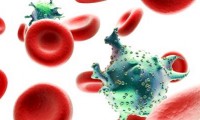-
Roche’s Erivedge no longer funded by the NHS
- Source: news.open-medical
- 549
- November 27, 2017
-
Medicare Fund Prepayment System Introduced, Benefiting Pharmaceutical Sector; Pharmaceutical Stocks Surge
- Source: drugdu
- 34
- November 14, 2024
-
Theramex’s Eladynos recommended by NICE for post-menopausal bone disease
- Source: drugdu
- 83
- August 23, 2024
-
Nature publishes new research on genetic causes of colorectal cancer
- Source: drugdu
- 54
- August 22, 2024
-
Study identifies new disease-inducing mechanism for inflammatory bowel disease
- Source: drugdu
- 90
- August 20, 2024
-
Study suggests COVID-19 vaccination lowers incidence of arterial thromboses
- Source: drugdu
- 64
- August 14, 2024
-
CRISPR-based Casgevy is made accessible in England following NICE guidance
- Source: drugdu
- 78
- August 12, 2024
-
Talent Management Strategies for Post-Milestone Growth
- Source: drugdu
- 78
- July 29, 2024
your submission has already been received.
OK
Subscribe
Please enter a valid Email address!
Submit
The most relevant industry news & insight will be sent to you every two weeks.












